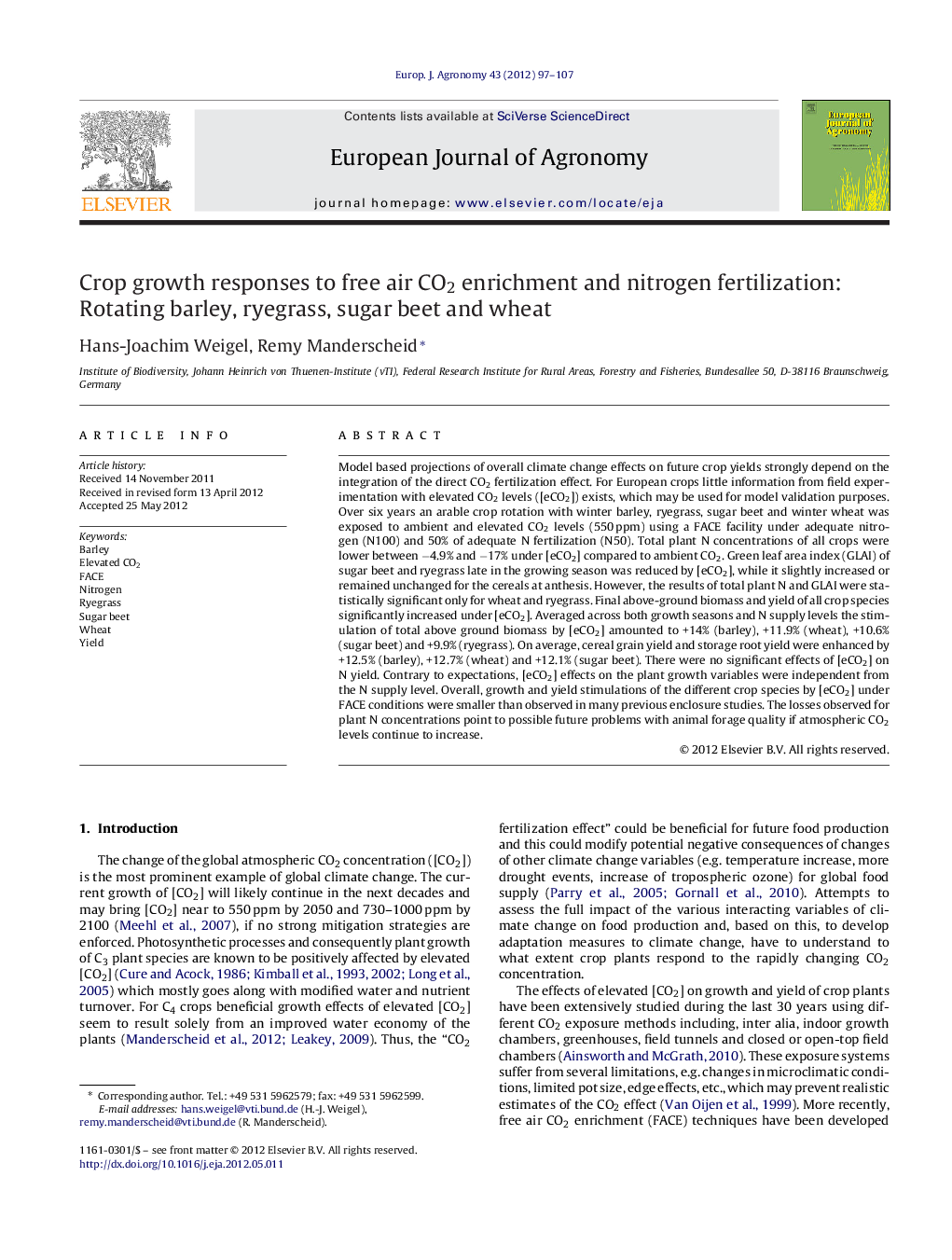| Article ID | Journal | Published Year | Pages | File Type |
|---|---|---|---|---|
| 4509137 | European Journal of Agronomy | 2012 | 11 Pages |
Model based projections of overall climate change effects on future crop yields strongly depend on the integration of the direct CO2 fertilization effect. For European crops little information from field experimentation with elevated CO2 levels ([eCO2]) exists, which may be used for model validation purposes. Over six years an arable crop rotation with winter barley, ryegrass, sugar beet and winter wheat was exposed to ambient and elevated CO2 levels (550 ppm) using a FACE facility under adequate nitrogen (N100) and 50% of adequate N fertilization (N50). Total plant N concentrations of all crops were lower between −4.9% and −17% under [eCO2] compared to ambient CO2. Green leaf area index (GLAI) of sugar beet and ryegrass late in the growing season was reduced by [eCO2], while it slightly increased or remained unchanged for the cereals at anthesis. However, the results of total plant N and GLAI were statistically significant only for wheat and ryegrass. Final above-ground biomass and yield of all crop species significantly increased under [eCO2]. Averaged across both growth seasons and N supply levels the stimulation of total above ground biomass by [eCO2] amounted to +14% (barley), +11.9% (wheat), +10.6% (sugar beet) and +9.9% (ryegrass). On average, cereal grain yield and storage root yield were enhanced by +12.5% (barley), +12.7% (wheat) and +12.1% (sugar beet). There were no significant effects of [eCO2] on N yield. Contrary to expectations, [eCO2] effects on the plant growth variables were independent from the N supply level. Overall, growth and yield stimulations of the different crop species by [eCO2] under FACE conditions were smaller than observed in many previous enclosure studies. The losses observed for plant N concentrations point to possible future problems with animal forage quality if atmospheric CO2 levels continue to increase.
► Six years of an elevated CO2 (FACE; 550 ppm) treatment under different N supply in a crop rotation reduced plant N concentrations of winter barley, ryegrass, sugar beet and winter wheat. ► Total biomass and grain yield were enhanced by elevated CO2 (from + 10% to + 14%) as compared to ambient CO2. ► Elevated CO2 effects were independent from the N supply level. ► N yield of all crops remained unaffected by elevated CO2.
